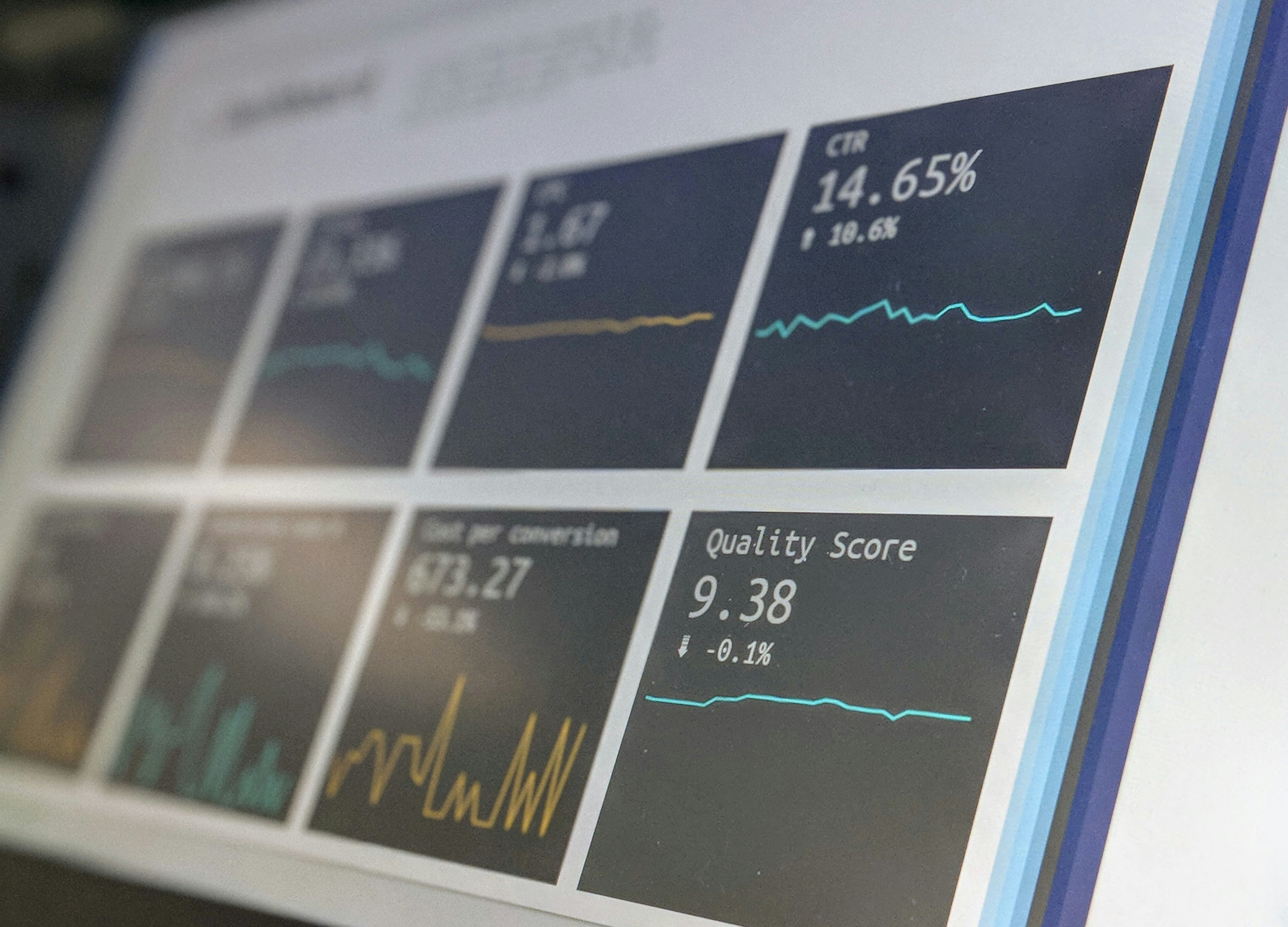



FTSE 100 - 2024
FTSE 100: Greenhouse Gas Disclosure
Author

Freddie Stretch
12 Nov 2024
This article is part of our ongoing series assessing FTSE 100 companies’ progress in ESG disclosures, leveraging advanced LLM frameworks. Here, we focus on Greenhouse Gas (GHG) reporting, providing insights into current practices, coverage, and verification in the FTSE 100.
Greenhouse Gas Reporting in the UK
GHG reporting has become a foundational component of corporate ESG disclosures, particularly as climate risk continues to be a focal point for regulators and investors. In the UK, the uptake of the Greenhouse Gas Protocol has been bolstered by the Streamlined Energy & Carbon Reporting (SECR) framework and the Task Force on Climate-related Financial Disclosures (TCFD) recommendations, which have guided companies in measuring and reporting their GHG emissions.
The Greenhouse Gas Protocol categorises emissions into three scopes, as illustrated in the graphic below. Scope 1 emissions cover direct emissions from a company’s owned or controlled sources, such as fuel burned in company vehicles. Scope 2 emissions include indirect emissions from the generation of purchased electricity, steam, heating, and cooling consumed by the reporting company. Scope 3 emissions encompass all other indirect emissions that occur throughout the company’s value chain, both upstream and downstream, including transportation, waste generated in operations, and the end-of-life treatment of sold products.
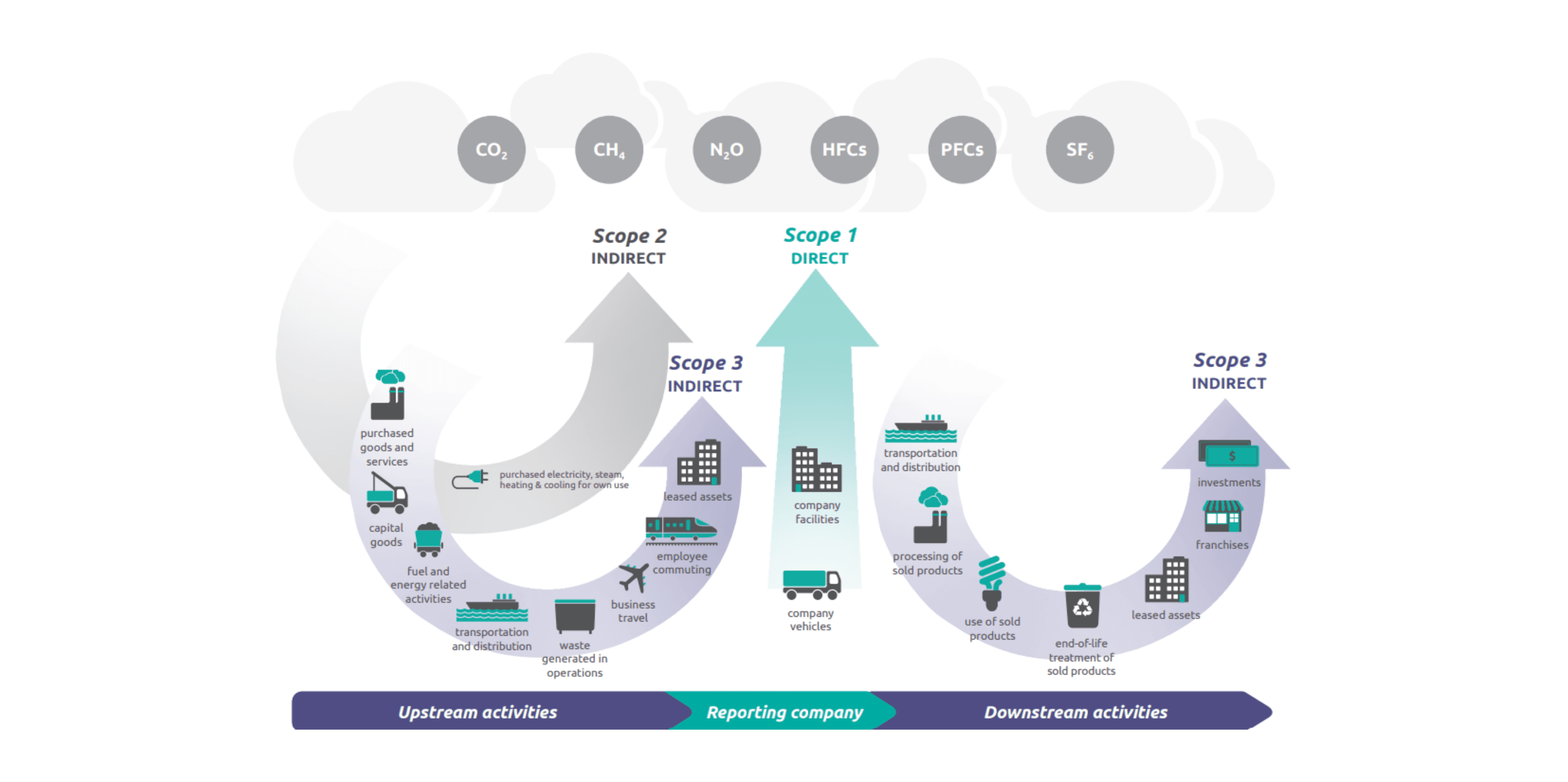
Greenhouse Gas Reporting FTSE 100 Analysis
Root’s analysis of FTSE 100 GHG disclosures revealed strong coverage across Scope 1 and Scope 2 emissions, with most companies also disclosing at least some level of Scope 3 emissions, albeit not always comprehensively across all relevant categories.
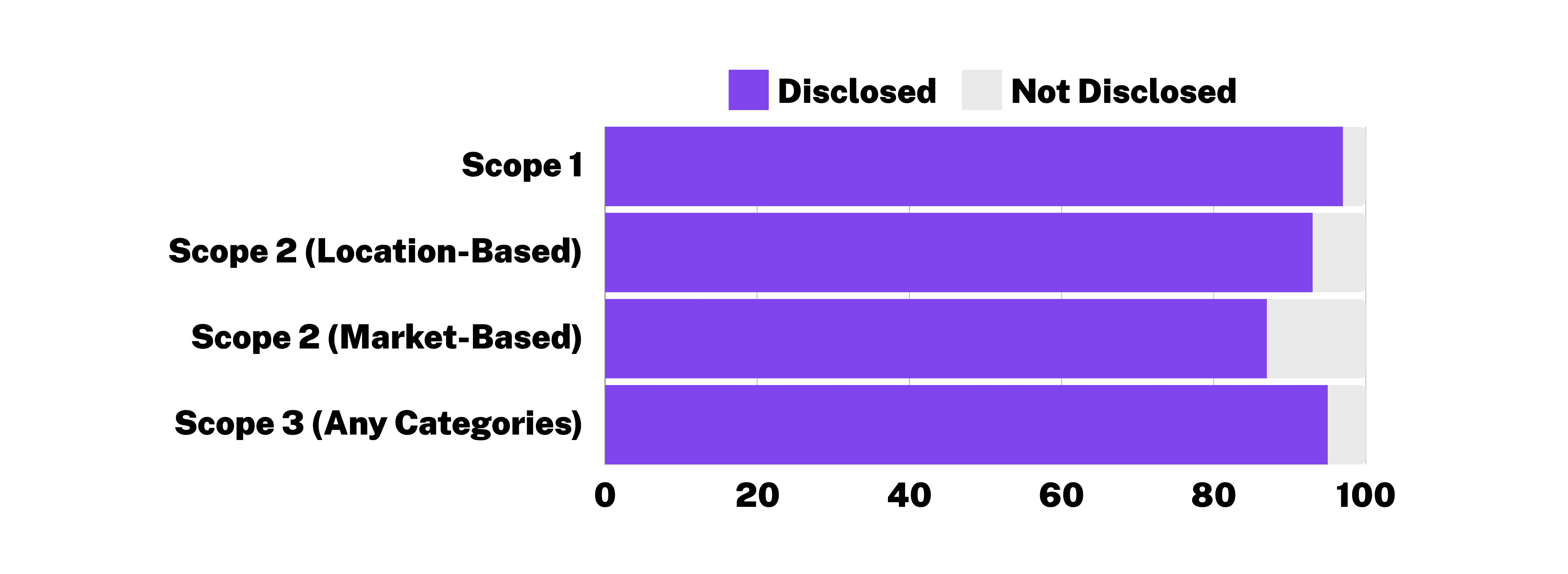
The high level of coverage in Scope 1 and Scope 2 disclosures demonstrates the maturity of GHG reporting practices within the FTSE 100, but it’s important to note that Scope 3 disclosures vary significantly in terms of detail and scope. This discrepancy suggests that while companies are making efforts to report indirect emissions, there may still room for improvement in comprehensively capturing all material categories under Scope 3. Root will be publishing a deep dive into the FTSE 100's performance against the sub categories of Scope 3 in the near future!
Looking at GHG targets, the majority of companies have set objectives across all scopes, including Scope 1, Scope 2, and Scope 3, and many have also established Net Zero targets. This proactive approach to target setting shows a positive trajectory, but there remains variability in the robustness of these targets and their alignment with science-based pathways.
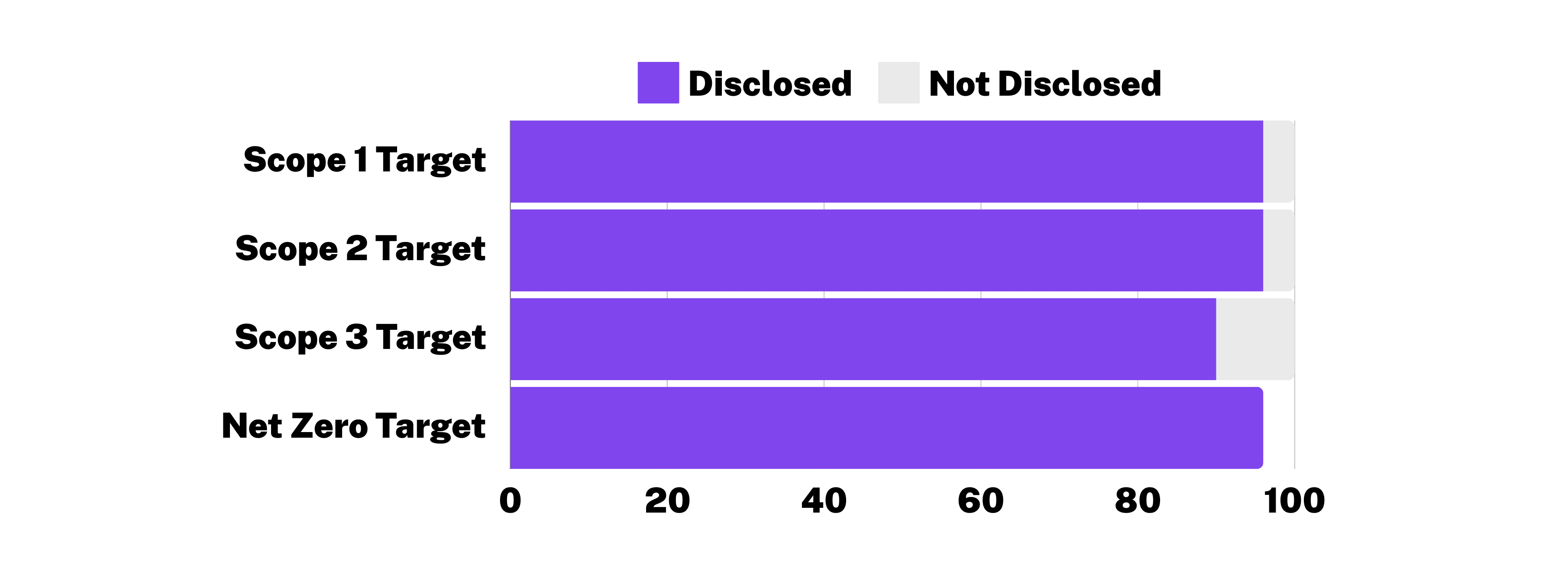
GHG Methodologies and 3rd Party Verification
Ensuring the accuracy and reliability of GHG data is critical for meaningful climate disclosures. Root's analysis found that 25 of the FTSE 100 companies report efforts to improve data quality by prioritising primary data sources, indicating a commitment to enhancing the reliability of their emissions calculations.
Third party verification of emissions calculations and sources is another crucial aspect of high-quality GHG reporting. Root’s analysis highlights the number of FTSE 100 companies that have sought third-party verification of their GHG data. As you can see below this number is much reduced from the amount of companies just disclosing their GHG emissions. 69 companies are getting Scope 1 and 2 GHG emissions externally verified, while just 48 are disclosing verification of Scope 3 emissions.
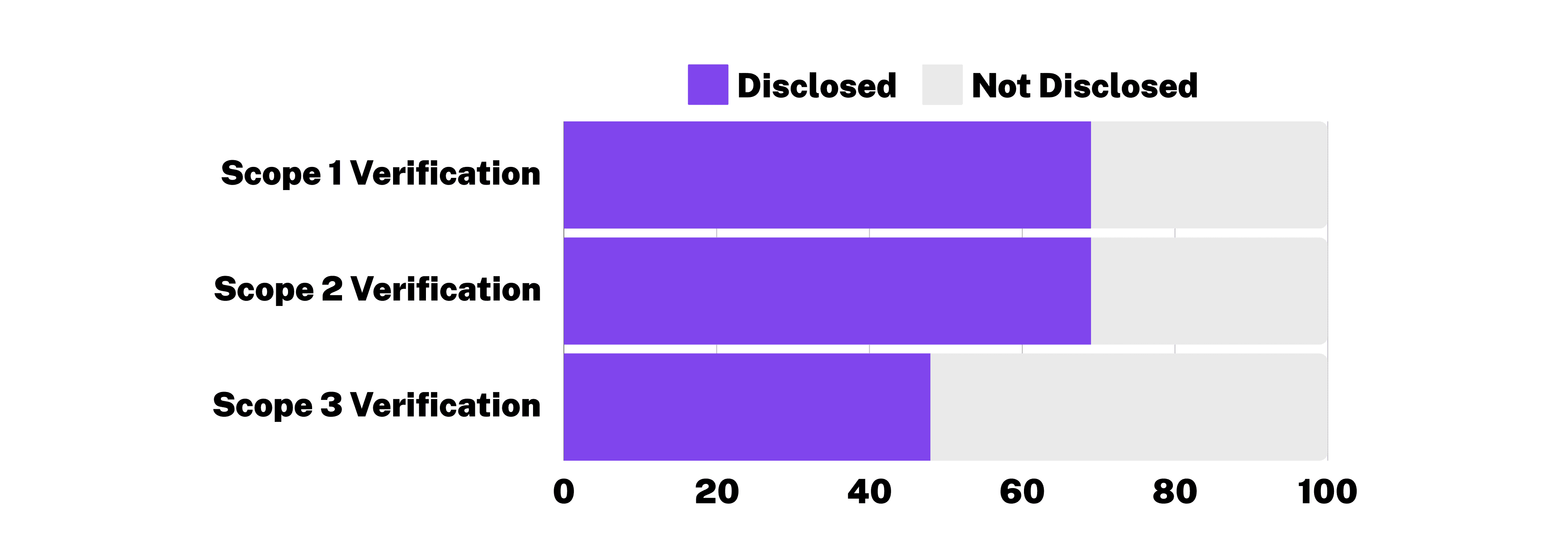
External auditing of emissions reporting is vital for investors and other stakeholders who rely on accurate data to make informed decisions. While verification is happening, this indicates the need for further enforcement by regulators to ensure that GHG emissions reporting by corporates is correct.
Greenhouse gas reporting is an area where FTSE 100 companies have made substantial progress, reflecting the sector’s commitment to transparency in climate-related impacts. However, for GHG disclosures to continue meeting stakeholder expectations, there must be a focus on rigorous data quality, comprehensive Scope 3 coverage, and the uptake of external verifications.
What this Means for Stewardship
The advanced state of GHG reporting in the FTSE 100 provides a strong foundation for investor stewardship. However, there remain opportunities for investors to engage with companies on several fronts. Investors should advocate for robust verification processes, as well as ongoing updates to methodologies to ensure that targets remain ambitious and achievable.
While the FTSE 100’s reporting is mature compared to newer regulatory landscapes in the EU and USA, there are still gaps to address, particularly as these regions bring in their own standards. Investors can play a key role in promoting consistent and high-quality GHG reporting across global markets, helping companies to meet evolving expectations around climate accountability.
As this analysis shows Root's tools can provide stewardship teams with data-driven insights that identify disclosure gaps, benchmark companies against leading frameworks, and highlight areas for engagement. By leveraging advanced LLM frameworks, Root enables teams to assess the quality and completeness of GHG reporting, evaluate verification practices, and track progress against climate targets. These insights equip investors to advocate for higher standards in ESG reporting, ensuring companies are transparent, accountable, and aligned with climate commitments.
Disclaimer: The data content is generated using Generative AI and Large Language Models (LLMs), which may introduce inaccuracies. Our FTSE 100 series analysis focuses solely on the annual reports of these companies. It is important to note that some companies may publish additional information on their ESG disclosures and strategies in other reports not covered in this analysis. Therefore, this analysis should not be considered a comprehensive or definitive source of information.

